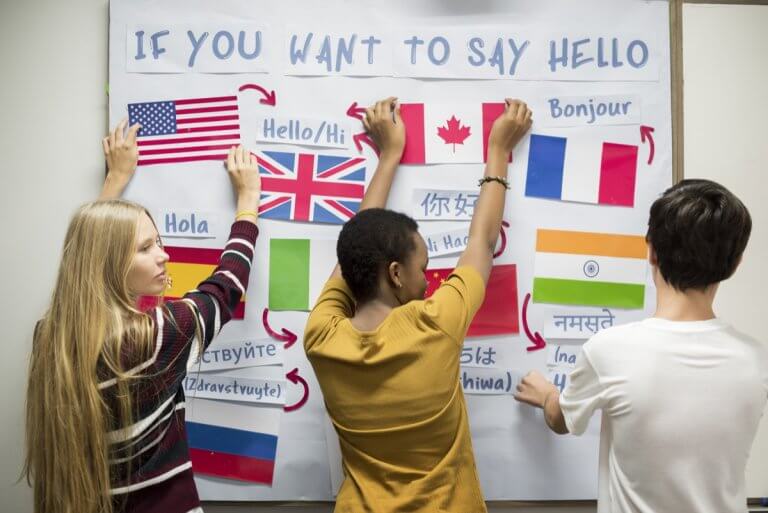
American sociologist David C. Pollock describes third culture kids (TCK) as people who have spent a significant part of his or her developmental years outside their parents’ culture.
These include the children of expats or those in the military, for example, who live and study abroad – sometimes, in several countries – as a result of their parents’ mobility and job placements. Some famous TCK’s include CNN journalist Christiane Amanpour and former US President Barack Obama.
TCKs’ international upbringing gives them with a unique perspective on life. Reports suggest they tend to be more open-minded, adaptable and better cross-cultural communicators as a result.
To many, it may seem like a glamorous or envious lifestyle to travel the world and make friends with an international network of students, but behind the seemingly cool facade lies some problems that may be brewing within students.
Third culture kid problems
It’s wonderful that there are so many of us who face similar situations. Maybe one day people can stop asking where I am from, and instead ask me where I grew up. The former is so difficult to explain; the latter, a joy to talk about. https://t.co/fy6dxzUaDa
— Priyamvadha Bhatta (@priyabhatta) March 25, 2019
Children of expats or those who are the result of transnational marriages may be born into one culture, but raised in many others, which can lead to identity confusion. For example, the question, ‘Where are you from?’ may seem pretty straightforward to many, but for TCKs, this can be a confusing question.
In a TEDxYouth@ISPrague talk, Vicky Schdeva, born to a Russian mother and an Indian father, shared how she was born in Moscow, Russia, but grew up in Prague, Czech Republic. The question ‘Where are you from?’ is a difficult one for her to answer.
“I usually freeze and start thinking: OK, I was born in Moscow, hence I’m Russian. But wait, my father is Indian – am I Indian too? Am I actually an Indian if I live here in Prague? Maybe I’m Czech. Yeah – I’m Czech, I grew up here, right? But wait – Russian is my mother tongue and I don’t even speak Czech so correctly. Am I Russian? But if I’m Russian, why do I speak in different languages to my parents? Why do I speak in English to my father? I’m confused,” she said.
Speaking to the BBC in 2016, Lois Bushong, a family therapist based in Indiana, US, explained that children of expats, many of whom are on contracts as short as two years, are forced to leave their close friends behind and make new ones regularly. The repeated losses caused by this can trigger anxiety and stress among TCKs.
How can parents and teachers support young global nomads?
“Supporting the development of third culture kids is an investment in the future talent pipeline”. Such a powerful quote. International schools are in the people development business supporting global mobility and tomorrow’s workforce @ACSintschools @acsrelo pic.twitter.com/s4eq3zF4TM
— Fergus Rose (@FergusRose) March 21, 2019
Clinical psychologist and leading international expert in the field of expatriate psychology and adjustment Dr Cathy Tsang-Feign notes that children who are flitting in and out of countries need help adjusting to their new environments.
On her website, she notes that many parents believe their children can adapt to new surroundings faster than adults, adding that: “Special effort is needed, especially on the parents’ part, to help children adjust to a new environment. Giving them time and patience is the first step. Parents need to resist the temptation of offering money to their children instead of time. In many cases, time, love and affection offered by parents can do their children far more help than therapy,” she wrote.
Speaking to the Children’s Mental Health Network (CMHN), Rebecca Grappo, an educational consultant who specialises in the placement of TCKs, said the three basic things all children need include belonging, recognition and connection, but that these basic needs “are ripped away with each move”.
TCKs undergo several layers of loss with each move, including the loss of their friends, community and pets, but they often don’t have time to ‘mourn’ their losses.
So how can one lend support to TCKs? Engage with them. Instead of asking them questions about where he or she is from or what’s troubling them, the report suggests asking the child about where they have lived, what they’ve left behind to open the doors of communication and to listen carefully to what they have to say. This gives them the time, space and permission to remember and mourn.
Liked this? Then you’ll love…
What can students learn from the School of Life?
Should young students study overseas early in their academic careers?







